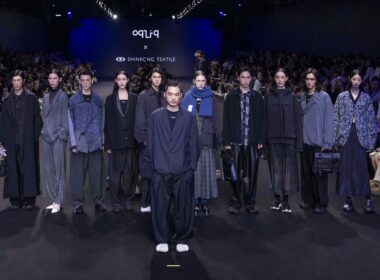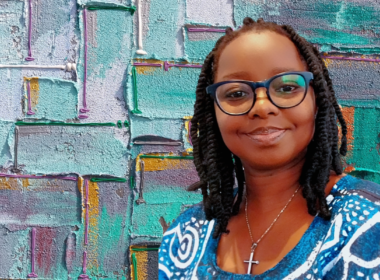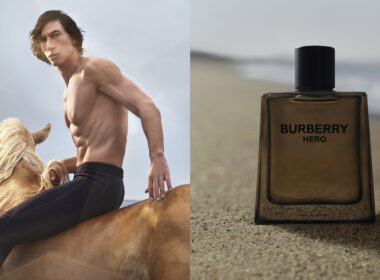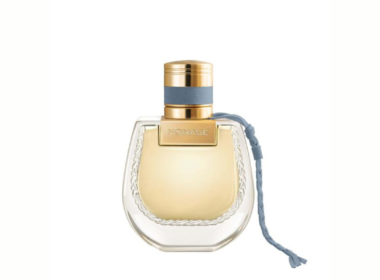As Africa Fashion Week Amsterdam marks its 10th anniversary, we sat down with Diana Tambe and Fabian Willems, the brains behind this great platform, to delve into the challenges and triumphs that have shaped their journey. In this exclusive conversation, they share insights into the upcoming edition’s highlights, their ambitious plans for the future—including the groundbreaking African art and culture museum in New Zealand—and the enduring spirit of collaboration that drives their mission.


Credit: Manny Fontanilla (@mannyfontanilla_)
Celebrating a Decade of Africa Fashion in Amsterdam
FAB: This is the 10th anniversary of Africa Fashion Week Amsterdam. How do you feel about reaching this milestone?
Fabian: It’s an exhilarating time. Reaching the 10th anniversary is proof of persistence. We’re incredibly proud because many people start something but struggle to continue. Our success shows resilience. I’m proud of the brand we’ve built. We’ve faced various challenges, experienced highs and lows, and lost and gained people along the way. But overall, the brand is strong and has tremendous potential for future growth. Our platform is meant to serve everyone, especially the African community and those interested in African culture. The platform has grown significantly, and I’m very happy with where we are now. I feel very positive.
Diana: Fabian has covered it all. We’ve faced many challenges, particularly with getting designers from Africa to Europe. Despite these difficulties, we’ve been consistent, and the growth has been remarkable, especially in the Netherlands, where Africa Fashion Week Amsterdam is now recognised, and where I have my store.
FAB: Speaking of challenges, let’s go back to the beginning. How did Africa Fashion Week Amsterdam start? What inspired this idea?
Diana: Over the past ten years, Africa Fashion Week Amsterdam has evolved into a beacon of innovation, diversity, and cultural celebration in the fashion industry. A decade ago, there were no platforms in the Netherlands that promoted African-inspired designers. As a designer in the Netherlands, I had to travel to England, America, or France to showcase my collections. It was quite difficult to get into shows like London Fashion Week at the time, which primarily featured big brands like Burberry. The same was true for New York. As an African designer, getting a spot on these runways was nearly impossible. I thought, “Why travel to other places when we can bring our culture to the Netherlands and celebrate it as a community?” And that’s how the idea for Africa Fashion Week Amsterdam was born.

FAB: You mentioned earlier that it was difficult for African designers to exhibit in the Netherlands. Now, even after 10 years, it remains challenging to bring African designers over. Why is that?
Diana: The challenges stem from a lack of experience in promoting and managing a brand, particularly for African-based designers, up-and-coming designers, and student designers who are not yet established. Many of them excel in the art of designing but struggle with brand positioning and marketing. It’s even more difficult to promote a brand that lacks PR or management support. Securing visas was also a significant hurdle, but we’ve started working closely with embassies, and now the ambassadors are familiar with our annual program. Getting visas for designers has become easier.
However, we now face new challenges in hospitality management and logistics. Designers often lack the budget and knowledge to plan for events. This is where we have to step in. Although we can assist by handling some aspects of production and promotion, designers often expect the organisation to cover the entire process. We do a lot to help them gain recognition because they lack the basic knowledge of how to get support from local governments to push their brands to the next level.
Bringing brands from Africa to the Netherlands to promote them and provide a platform for them to share their stories is fraught with challenges. Fabian, in particular, has a lot on his plate. He manages the production side for the designers, handles bills, and oversees distribution channels. We both deal with various issues related to the designers.
Fabian: There’s a common misconception that people think a fashion show is a marketplace where they can sell products. However, a fashion show is more about showcasing and representing your brand—it’s about building visibility. First, you get exposure, and over time, recognition becomes easier. Sometimes, designers are concerned about the lack of immediate sales, but sales begin with the experience you create for your customers. Engaging with the audience is key.
This is something we strive to educate designers about when they join our platform. People need to have an experience with your brand and the clothes. Selling in African countries is different from selling in Europe. Online visibility is a whole different ballgame. We’ll be addressing these challenges at our business summit on August 28th, which is ahead of the two fashion show events. The summit will focus on these common issues and more.
More Like This:
This movie is an absolute must-see for Fashion Lovers
When Berlin meets Taipei, the freedom of style begins to unfold | #DAMUR
Announcing Samata Pattinson As This Year’s Global Fashion Summit’s Main Stage Host
FAB: Let’s explore the 10th edition of Africa Fashion Week Amsterdam. Are there any special events or activities that attendees should be excited about?
Fabian: Yes, one of the main highlights is the business summit focused on fashion, art, and culture. This summit goes beyond just fashion. Last year, we launched a brand called “Art Meets Fashion” because we recognised that the fashion community intersects with the broader creative industry, including art and music. These elements are integral to the fashion world. At the summit, we want to bring together partners, stakeholders, designers, and artists to network in an intimate, focused setting. This will take place on the 29th and 30th of August.
Regarding the fashion shows, we plan to feature 10 designers each day. We’ll showcase the best designers from Europe with African roots or backgrounds, as well as designers from Africa itself. Our goal is to represent as many countries as possible. This will be a major highlight of the week, featuring top models from Central Africa, Nigeria, and even the UK. It’s a truly international crowd. Additionally, there will be performances from artists, including an African opera singer, which will add a unique flavour to the event. Of course, we’ll also have catering services offering African cuisine, VIP tables, and a closing after-party.
FAB: You mentioned showcasing 10 designers each day. Are there any notable newcomers or returning favourites among this year’s lineup?
Fabian: We’re still finalising the details, so I can’t reveal everything just yet. However, I can tell you that we have some exciting newcomers in the mix. I’ve spoken with many designers who won’t be showcasing this year but are planning to make a big statement next year. This highlights one of the challenges we face—designers want to make sure they’re fully prepared to go big on this platform. We’re also seeing contemporary designers, particularly those focused on what young people are wearing today, like jeans with bold colors. But again, we’re not ready to disclose all the names just yet. I’ll update you when we have more information.
FAB: This is my first time attending a Fashion Week event, especially one as significant as the 10th anniversary of Africa Fashion Week Amsterdam. How can I make the most of this experience?
Diana: It really depends on your role—whether you’re attending as a guest or an exhibitor. If you’re a guest, I suggest immersing yourself in the cultural exchange and enjoying the creative expressions on display. As an exhibitor, there are numerous opportunities for networking and potentially contributing to the social, cultural, and political dialogues here in the Netherlands, especially in connection with Nigeria. You could also consider going backstage to interview key players and designers.
Fabian: We also have a dedicated media group that handles press coverage, so you could collaborate with them. This is a great opportunity to expand the visibility of these events because they deserve broader attention. The more people we can reach, the better. If you’re interested in covering the event, whether through video or writing, we can definitely coordinate on how to make that happen.
FAB: Have there been any significant collaborations or partnerships secured for this year’s event?
Fabian: Yes, one key partnership is with the film industry. We’ve been working with Ramsey Nouah for several years now, and he has been a strong supporter. As I mentioned earlier, we’re focusing not just on fashion, but also on art, culture, and cinematography. Ramsey Nouah will be hosting Fashion Week, and we’re planning to collaborate with designers in various capacities beyond this event. We want to help designers showcase their work in other locations, like London and New York, to expand their networks and opportunities.
Diana: We are excited to explore the connection between film, cinematography, and fashion. Major artists from Nigeria are participating, and we also have a music collaboration with one of Nigeria’s top artists, who will perform at the event. In addition to the fashion show, we’re hosting a seminar beforehand and working on a significant collaboration to open the first African art and culture museum in New Zealand. This museum is currently our biggest project.
Fabian: We’re focused on raising awareness about this museum initiative. At the business summit, we’ll present our plans for the future to create awareness and attract investors. This step is crucial for us, as we aim to establish a museum in Amsterdam, Europe, dedicated to African culture and heritage.
FAB: What emerging trends in African fashion are you excited to see at this year’s event?
Diana: I’m thrilled about the diversity of designers we’ll be showcasing. We have thirty designers from thirty different countries, each telling their unique stories through their collections. That’s what excites me the most. Stay up to date on the latest in fashion, arts, beauty, and lifestyle by following FAB L’Style Magazine.
FAB: Regarding the African museum, will it be a permanent establishment, and what will it entail?
Fabian: The museum is part of our future vision, and it hasn’t been established yet. We face challenges every year with venue rentals, where we have to set up and break down repeatedly. The museum will be tied into the tourist landscape and provide us with a permanent building where we can consistently showcase African culture and fashion. It will include detailed exhibits and an event space for fashion shows, entertainment, and seminars throughout the year, allowing us to continuously promote African heritage and culture.
FAB: As the face of Africa Fashion Week Amsterdam, what has been the most rewarding part of your journey, and what advice would you give to someone starting a similar initiative?
Diana: The most rewarding aspect for me is giving designers hope and a platform where they can express their creativity, connect with potential sponsors, and reach buyers. We’re also working on collaborations that will allow designers to host pop-up shows in New York and other countries, which is a significant achievement for us. My advice is to build a solid foundation and focus on collaboration. In the fashion industry, collaboration is crucial. Building strong relationships with partners is essential for growth. Your vision must be clear, and you need to constantly evaluate and improve upon what you’ve done in the past. Persistence is key—knock on doors, seek support from organisations, and remain adaptable.
Fabian: I’ve observed how Diana has created an inclusive platform. Sometimes, as Africans, we can be very private and individualistic. However, it’s vital to have a platform where we can work together as partners. African Fashion Week and the African Fashion Museum have demonstrated over the years that this is not a competitive platform but an inclusive one, welcoming everyone. It’s not about race; it’s about humanity and supporting innovation. Starting small while maintaining a big vision is essential. The key to success lies in self-belief, ambition, and the courage to pursue what may seem impossible. Even when others doubt you, you must push forward and make things happen. I encourage everyone in the Netherlands to come and join us on the 28th and 29th. Don’t miss out on this incredible event.











